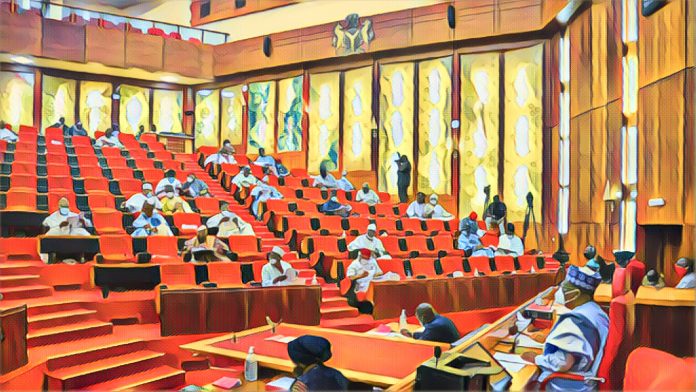The Nigerian Agricultural Insurance Corporation (NAIC) has come under fire from the Senate Committee on Finance for failing to provide details of its finances from 2021, 2022, up to the third quarter of 2023. The committee, led by Senator Sani Musa (APC, Niger South), expressed regret over the absence of receipts to prove NAIC expenditures from revenue claims.
According to a document submitted to the committee by the MD/CEO of NAIC, Folashade Joseph, the corporation transferred N3, 847, 202, 032.03 to the Consolidated Revenue Fund of the federal government in 2023. However, she contradicted her submission by arguing that the organization recorded “huge losses in 2022, hence, we were unable to remit for the year.” The committee members were not satisfied with her explanations and demanded the corporation’s audited account covering 2021 and 2022, up to the third quarter of 2023. They also asked for a breakdown of NAIC finances, insisting that the panel was poised to “block all loopholes all in the account of MDAs.”
NAIC is a federal government-owned insurance company that provides insurance cover to farmers in Nigeria. It offers premium subsidy, general risks coverage, coinsurance services and extension services to insured farmers and projects. The corporation was established in 1987 to fill the gap created by the reluctance of conventional insurers to accept agricultural risks. The committee also interacted with the Nigerian Financial Intelligence Unit, and the Equipment Leasing Registration Authority, while the Corporate Affairs Commission did not send representatives to the interactive session.
The Senate Committee on Finance is responsible for overseeing the revenues and expenditures of the federal government and ensuring accountability and transparency in the management of public funds. The committee has been conducting interactive sessions with various Ministries, Departments and Agencies (MDAs) to scrutinize their financial performance and projections.
The interactive sessions are part of the preparations for the 2024 budget, which is expected to be presented by President Muhammadu Buhari in December. The committee has vowed to ensure that the budget reflects the needs and aspirations of Nigerians and promotes economic growth and development.
Source: [ Punch ]



